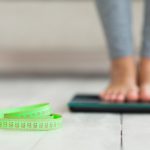
In a small pilot study, some young women looking to lose weight on a low-calorie keto diet got an unexpected benefit: Their acne began to clear up. “These findings represent an opportunity to control a skin disease that affects most teenagers and many adults at some point in their lifetimes, causing distress, embarrassment, anxiety and low self-confidence among sufferers, robbing them of their quality of life,” said lead study author Luigi Barrea, of the Università Telematica Pegaso in Naples, Italy. His team presented its findings Tuesday at the European Congress on Obesity on Vienna, Italy. As Barrea’s group explained, acne is thought to be a chronic inflammatory illness affecting what’s known as the pilosebaceous unit: the hair follicle, hair shaft and nearby sebaceous gland. About 9% of the world’s population is affected by acne, largely in the teenage years. According to the Italian researchers, acne has long been linked with obesity, perhaps because both conditions are tied to rising inflammation and oxidative stress. Could the ketogenic diet fight that underlying inflammation and oxidative stress? “While the role of diet in acne is inconclusive, the very low-calorie ketogenic diet is known for aiding weight loss and generating anti-inflammatory ketone bodies that provide energy when dietary carbohydrates are scarce, as well as promoting resistance against inflammatory and oxidative stress,” Barrea explained in a meeting news release. “We thought… read on > read on >


















